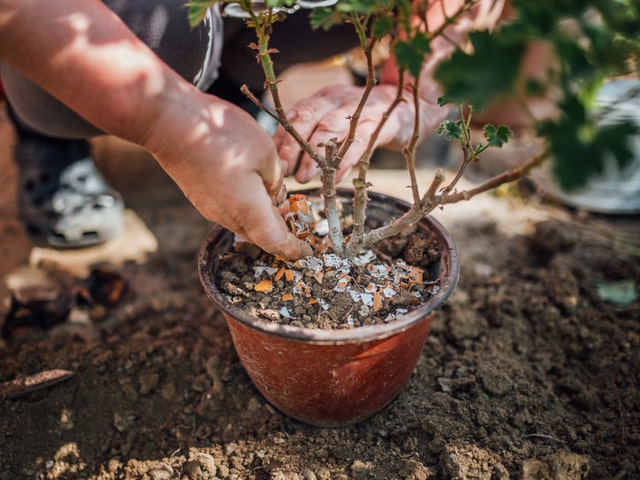
When you think about fertilizers, chances are that you picture commercial products you can buy in bags at your local garden center. However, it doesn't have to be that way. There are actually many effective fertilizers you can make all by yourself, using ingredients found in your home.
These fertilizers are effective and great to use on your plants, so you don't have to worry about them being too weak or ineffective. Another advantage is that they are organic and therefore more environmentally-friendly than commercial fertilizers. Finally, by using ingredients you can find in your home, you will save a lot of money. Organic fertilizers are a great way to fertilize your plants and keep your garden environmentally-friendly.
Many of these fertilizers can be made using nothing but your kitchen waste. Here are some of the quick and handy recipes for making your homemade, organic fertilizers.
Coffee grounds
Coffee grounds make a great fertilizer for acid-loving plants such as blueberries, roses, azaleas and tomatoes. These plants thrive on the nitrogen found in the coffee grounds. Simply mix some coffee grounds with the soil or just sprinkle coffee grounds on top of the soil before watering. You may even pour some liquid (coffee grounds mixed with water) on top of the soil. To make a nice coffee ground tea, soak about 6 cups of coffee grounds in a 5 gallon bucket of water. Mix it well and let it sit for about 2 to 3 days. After this, pour on the soil around the plants.
Banana peels
Bananas are healthy and very tasty. They are also an excellent source of potassium. To use bananas as a fertilizer, simply take banana peels. They are great for fertilizing roses. Remember: roses love potassium. To use banana peels effectively, simply throw 1-2 of them in the hole before planting your roses. Alternatively, you may bury the peels under mulch so they will compost naturally. Banana peels will make your roses thrive and develop more blooms. Also, the flowers will be bigger and healthier. You may also use banana peels for fertilizing vegetables.
Egg shells
To use them as a fertilizer, make sure to wash them first and then crush them. Work them into the soil near your plants. Egg shells are best for peppers and tomatoes. Calcium found in the egg shells will help peppers and tomatoes grow and thrive. Remember, egg shells have a high percentage of calcium carbonate, the same ingredient as lime, which is a great soil amendment. It's also a good idea to use a bit of egg shells in your homemade potting mix, especially for tomatoes. This will give you strong, healthy fruits ideal for seed saving.
Seaweed
This is an excellent soil amendment, and you can easily find it on Asian markets. Some people choose to use only washed seaweed to remove salt, but this may not be necessary. Keep in mind that you may use both fresh and dried seaweed for your plants.
Seaweed contains trace elements so it can act as a food source for beneficial microorganisms in the soil. To use seaweed, chop up a small bucket of seaweed and mix it with 5 gallons of water. Let it sit for 2 to 3 weeks and make sure it's loosely covered during this period. After this, you can use it to drench up the soil or even your plants' foliage. Use about 2 cups of mixture for small plants, 4 for medium ones and 6 for big plants. You may also combine seaweed with other tea fertilizers. Experiment until you find the exact amount that works best for your plants.
Grass clippings
These are rich in nitrogen and can be used to enhances the soil. To make a fertilizer tea, mix grass clippings with a 5 gallons of water. Let the mixture sit for 1-2 days. After this, make sure to dilute the mixture by adding 1 cup of it to 10 cups of water - you don't want the tea to be too strong. Apply it to the base of the plants.
Molasses
These are great to make a compost tea to increase the number of beneficial microorganisms in the soil. Mix 1-3 tablespoons of molasses with a gallon of water. Use this mixture to water your plants and they will become bigger and stronger.
Manure
This is a well-known fertilizer. It's best to use composed and aged manure, preferably cow manure. Add it to a small permeable bag made of cloth and let it steep for a few days in the shade. After this, add it to the soil before planting. Make sure to bury or discard the bag. You may even use manure to make a tea for the bare root roses.
Cornmeal
It's high in nitrogen and phosphorus and can act as a fungicide. To make a cornmeal tea, mix a cup of it with 5 gallons of water. Let is sit for several hours, and then strain the liquid to add it to a spray bottle. Use this mixture to spray the leaves of your plants. It works great against fungi and you may use it in a combination with other compost teas. You may also use the leftover water from cooking corn to pour on the vegetables in your garden.
Additional Things
In case these ingredients are not enough for you, here are some other things you may use to fertilize your plants. Some of these things are a bit "unusual", but they actually work, so you may want to try it on your plants to see how it goes.
- Human urine. Believe it or not, urine makes a good fertilizer. If a person is healthy, urine is sterile, and it contains high dosages of nitrogen, phosphorus and potassium. To make a tea for the plants, it's best to make a mixture of 1:8 ratio of urine to water. Use this mixture on your plants and see how it goes.
- Weeds. You can use weeds for your plants, but you have to be careful and use only specific plants. Comfrey, nettles, yellow dock, horsetail, burdock and chickweed can all be used to make a homemade fertilizer. In case they are not in flower yet, you can simply dry them in the sun, chop them up and use as a mulch. Remember, these plants are high in nitrogen, so they won't take nitrogen from your plants. Also, you may use borage (starflower) for the same purposes. It contains plenty of nutrients your plants need. Dry the whole plant, along with the root, and simply put it in the compost. This will give your pile an extra dose of heat and encourage the decomposition process. You may also make a fermented fertilizer using weeds. Use their leaves and roots and mix with 5 gallons of water. Make sure to weight down the leaves with a brick so the whole plant matter is covered with water. Let it sit for 3 to 5 weeks and don't forget to stir the mixture once per week. After this period, you may use this mixture for your plants, but you will have to dilute it 1:10 or more. Make sure to use it as a weak tea. One word of caution about weeds: not all weeds are suitable for this, so always make sure you use the non-invasive ones in the compost or for the tea. With weeds, there is always a risk that some of the seeds may spread to your garden, so you need to be careful.
- Dog and cat food. Depending on the ingredients, pet food may be a great source of elements. However, you have to make sure that the food doesn't contain any additives. You may use organic food when preparing a bed for your plants. Apply some pet food on the bed, turn it and add water. Let it decay and make sure to cover it with cardboard to discourage wild animals to find it. Water it thoroughly every week for 3-4 weeks. In a similar way, you may use soybean meal, alfalfa pellets and various grains. Ask at a grain store if you can have spoiled grains. However, make sure not to use any pet food high in sodium - these are good for pets but not for your plants.
Photo credit: Ivan Radic
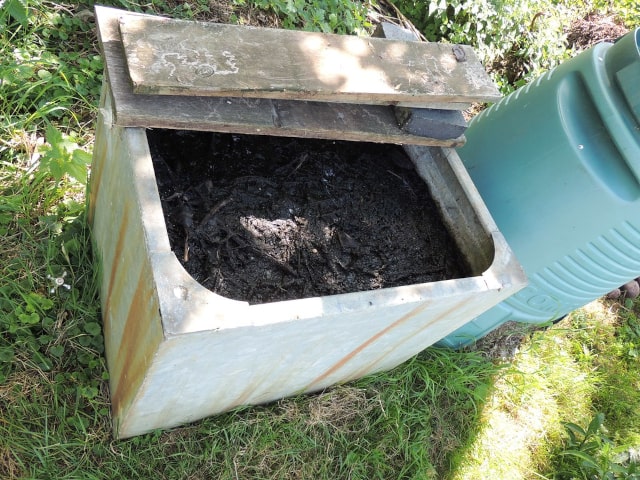
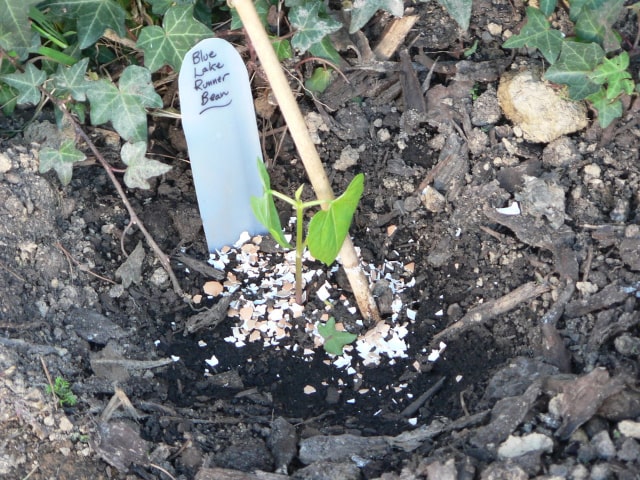
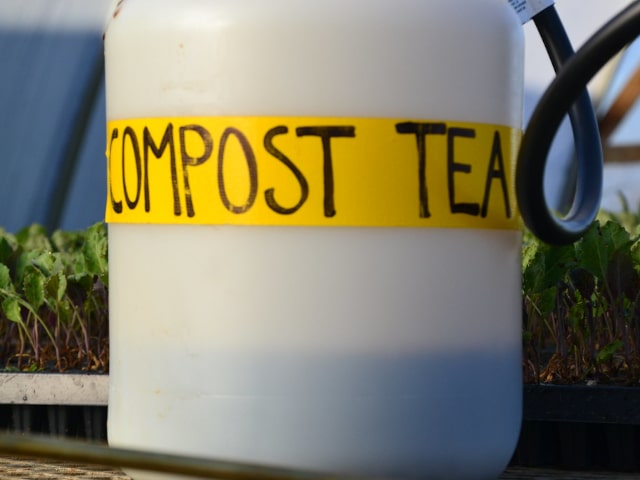
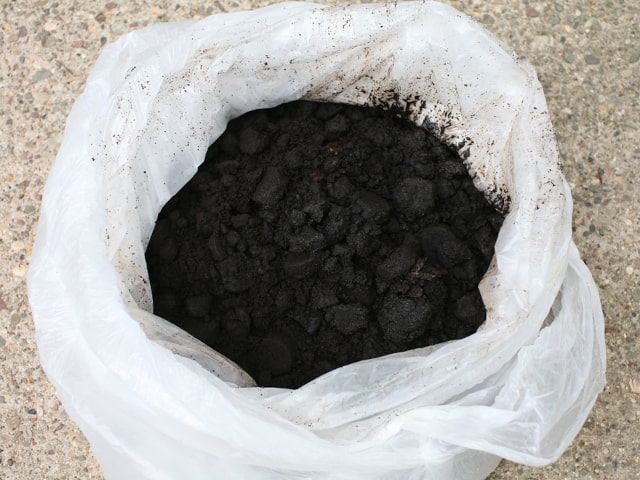
0 Comments